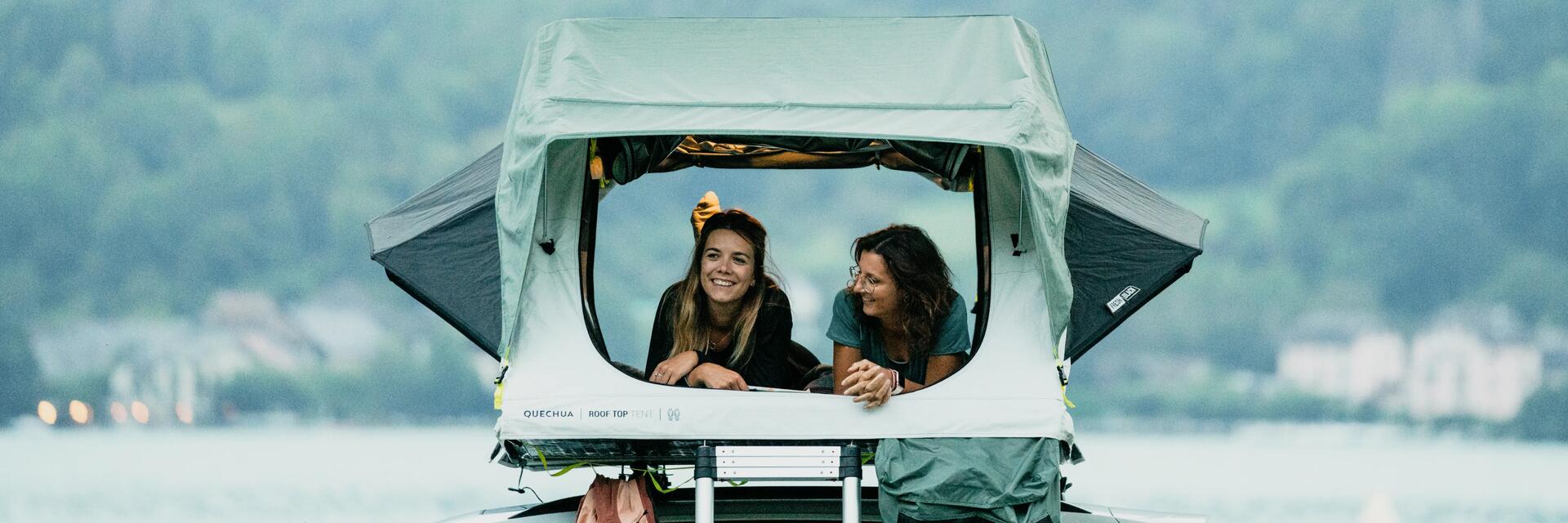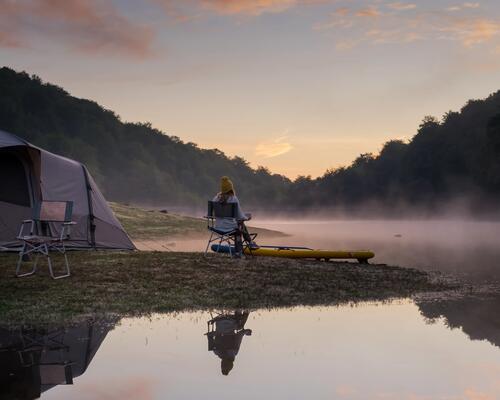What are the advantages of a rooftop tent?
Sleeping high up in your vehicle, in France or abroad, offers many advantages. Which ones? We list them for you, right here!
1. Avoid insects and other creepy crawlies: you know, the type that sometimes decides to come and say hello in a traditional tent, even when the door’s closed. Or any other animal, for that matter! Foxes, raccoons, goats, horses... Nothing really life-threatening here in the French countryside. But in countries that have slightly less "friendly" roamers, this could prove to be somewhat useful.
2. Escape those pesky little floods on heavy rain days: perched on top of your car, you don’t run the risk of finding yourself ankle-deep!
3. Sleep on a truly flat surface: if you still have nightmares about that tiny stone that prevented you from getting some shut eye last summer, the advantage of sleeping on your roof, is that you’re definitely going to be sleeping flat.
4. Make your wake-ups easier: with this type of tent, its height and ladder give you a bed edge to make the shift from the lying position to the standing position easier, for a gentle wake-up.
5. Being able to camp (or nearly) anywhere you want, without paying the price of van life: no need to kit out the interior of your van or utility vehicle, nor invest in a new vehicle. All you need is the roof of your car! Even though the purchase price of a rooftop tent isn’t negligible, it’s nowhere close to the purchase or fitting out of a van, nor its upkeep.
6. Rekindle those childhood memories: let’s admit it, sleeping on the roof of your car or van is kind of like the adult version of the top-level bunk (or finally getting that "treehouse")
you’ve always dreamed of...).Not yet swung on the idea of a rooftop tent for your next trips? Be sure to read our article so you find the best type of camping tent to suit your needs!












